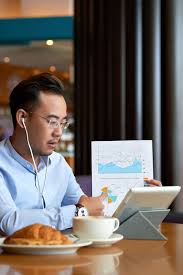In an age when education must respond dynamically to rapid societal, technological, and cultural changes, educators who lead with vision and purpose stand out. One such figure is Rachel Satralkar, an educator and IB (International Baccalaureate) specialist whose journey across continents and curricula offers lessons for aspiring leaders, teachers, and policy-makers in global education.
From her roots in India to her role in Singapore, Rachel Satralkar’s path underscores the interplay of empathy, pedagogical rigor, and continuous learning. This post delves into her biography, her education philosophy, her influence in IB programmes, and what we can all draw from her approach.
Early Life and Academic Foundations
Detailed public accounts of Rachel’s childhood are limited, but we do know that her academic grounding is in English and education. According to the workshop documents of Christ University (Bangalore), she holds a Master’s in English Literature and has embarked on a second Master’s in Advanced Educational Practices from the University of the People (USA). christuniversity.in
This academic orientation—in literature, language, critical thinking—provides a foundation upon which her educational philosophy is built: one that places inquiry, communication, and reflection at the core.
Her early years teaching in India gave her exposure to diverse student populations and set the stage for her later work in international schools. Over time, she moved into roles involving IB programmes, transitioning from classroom teacher roles to curriculum leadership and coordination.
Professional Trajectory & Roles
Rachel Satralkar’s LinkedIn profile describes her as a Programme Coordinator (MYP) with over 12 years of experience related to IB programmes, curriculum design, and educational development. sg.linkedin.com
She has worked at multiple international schools, particularly in India (e.g., Mumbai, Pune) and currently in Singapore, with XCL World Academy being one of her affiliations. On the official IB school listing, she is named as the Middle Years Programme (MYP) Coordinator at XCL World Academy, Singapore. International Baccalaureate®
Her responsibilities in these roles include:
- Designing and aligning curriculum with IB standards
- Mentoring and professional development for teachers
- Leading interdisciplinary and inquiry-based units
- Overseeing assessment frameworks, feedback loops, and programme evaluation
- Ensuring the integration of student well-being, agency, and global awareness into learning
Additionally, she has served as a speaker and facilitator in educator workshops. For example, she was a presenter at a Workshop on Teaching and Learning in the International Baccalaureate held at Christ (Deemed to be University), Bangalore, where she led sessions on MYP unit planning, assessment practices, and feedback strategies. christuniversity.in
Her participation in such workshops highlights her role beyond her immediate institution: as a contributor to the broader educational community.
Philosophy of Teaching & Educational Values
What is it that distinguishes Rachel Satralkar’s educational approach? From various articles profiling her, a few recurring themes emerge:
1. Learner-Centered, Inquiry-Based Pedagogy
Rachel advocates moving away from rote instruction toward student agency—where learners take ownership of questions, exploration, and meaning-making. She promotes lessons structured around compelling questions, authentic inquiry, and opportunities for students to drive their own learning.
2. Holistic & Well-Being Focus
She believes teaching is not just subject delivery: educators must attend to students’ emotional, social, and personal growth. In practice, this means embedding strategies for self-management, reflection, and balance into the curriculum.
3. Global Citizenship & Cultural Sensitivity
Aligning with the IB’s mission, Rachel emphasizes international-mindedness: helping students engage meaningfully with global issues, cross-cultural perspectives, and ethical decision-making. Her curriculum work often weaves in global contexts and local relevance.
4. Continuous Growth & Reflective Practice
Rachel’s own academic journey—pursuing further qualifications and being involved in professional development—signals the importance she places on lifelong learning. She models what she expects from teachers: reflection, adaptation, and evolving practices in response to changing educational landscapes.
5. Collaboration & Leadership
Her leadership periods (especially as MYP Coordinator) are collaborative rather than top-down. She works alongside teachers, coaches, and stakeholders to co-design programs, share insights, and develop shared ownership of curricular decisions.
Impact & Contributions to IB Education
Rachel’s work has produced tangible impact in her schools and beyond. Some of the contributions include:
- Successful IB programme implementations: She has guided schools from candidacy to authorization of IB programmes, particularly in MYP. christuniversity.in
- Curricular coherence and alignment: By helping departments across disciplines connect and align with IB standards, she ensures students engage in meaningful, cohesive learning experiences.
- Teacher capacity building: Through workshops, mentoring, and in-house training, she uplifts teacher practice, especially for those new to IB pedagogy.
- Thought leadership: Her participation in educator forums, presentations, and publications contribute to the broader discourse around IB’s evolution and challenges in international education.
- Advocacy of inclusive practices: Rachel promotes differentiation, culturally responsive teaching, and systems that allow learners of varying backgrounds and abilities to thrive.
While she may not have widespread media fame or celebrity status, her footprint in the international education community is felt through the teachers and students she influences.
Challenges & Considerations
No educator’s journey is without obstacles. Given the nature of her work, Rachel likely faces these challenges:
- Balancing standardization and flexibility: Aligning curriculum to IB frameworks while allowing teacher autonomy is a perennial tension.
- Teacher buy-in and change management: Integrating inquiry-based, student-led practices demands shifts in mindset among teachers accustomed to traditional methods.
- Resource constraints: International schools operate under budgets, staffing, and scheduling demands, which can constrain innovation.
- Cultural and contextual adaptation: Implementing IB philosophies sensitively in local contexts (e.g., in India or Singapore) means negotiating cultural expectations, language diversity, and community values.
- Staying current: As educational research, technology, and pedagogy evolve rapidly, maintaining relevance and freshness in strategy is demanding.
Rachel seems to navigate these by adopting a learning mindset, collaborating with colleagues, and anchoring change in student outcomes and feedback.
Lessons for Aspiring Educators & Leaders
What can others learn from Rachel Satralkar’s path? Here are some takeaways:
- Start from subject mastery, then expand
Her grounding in English and literature likely gave her the content confidence needed before branching into curriculum leadership. - Embrace lifelong learning
Pursuing advanced qualifications and engaging in workshops shows how important it is to evolve as a professional, not stagnate. - Lead through partnership
Change is more sustainable when done with teachers, not to them. Building consensus and shared vision matters. - Center the learner
Design with inquiry, agency, reflection, and voice. The best curriculum adapts to students, not vice versa. - Scale via mentoring
One person may not change an entire system, but mentoring teachers can propagate impact across generations. - Integrate global and local perspectives
The best global education stays responsive to local cultures, contexts, and realities.
Vision Ahead & Future Directions
While the latest public records don’t detail Rachel’s next moves, several plausible pathways emerge:
- Senior leadership or directorship roles: She might move into roles overseeing multiple programmes or schools.
- Consultancy or advisory positions: Given her experience, she could become a consultant helping schools worldwide adopt IB programmes or revamp curricula.
- Authorship & research: There’s potential for publishing articles, case studies, or even books in educational leadership and IB practice.
- Professional development platforms: She may establish or lead networks, training programs, or communities of practice in international education.
- Policy influence: With her depth in IB and curriculum frameworks, she might engage in influencing educational policy in broader systems.
Whatever path she takes, Rachel’s grounding in values, inquiry, and empathy positions her to make lasting contributions.
Conclusion
Rachel Satralkar is more than a name in the IB community; she represents a model of what international education can aspire to—rigorous, learner-centered, globally aware, and growing. Though her profile is not widely known in mainstream media, her work resonates in the classrooms, teams, and programmes she leads.








